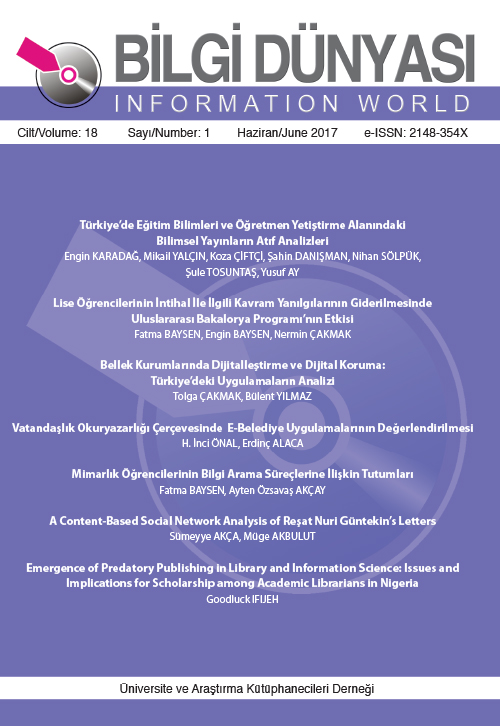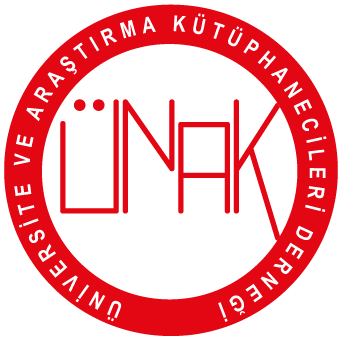Digitization and Digital Preservation in Memory Institutions: Analysis of the Practices in Turkey
DOI:
https://doi.org/10.15612/BD.2017.580Keywords:
Cultural memory institutions, cultural heirtage, digitization, digitization policies, TurkeyAbstract
Cultural heritage as an indicator that shows the existence and the structure of a society, is a concept that fundamentally based on the transmission of cultural values and objects among the generations. This feature of the concept requires effective use of information and communication technologies (ICT). Libraries, archives and museums are cultural institutions that efficently use ICT in order to provide value added services for their users. As one of these services, digitization practices contain many decision making processes for libraries, archives and museums. This study aims to analyze the practices of Turkish memory instutions having responsibilities for the issues related to digitization and digital preservation of cultural heritage objects. In this regard, this study conceptually discusses cultural heritage and libraries, archives and museums as cultural memory institutions and their digitization attempts in context of the developments in Turkey. In the light of description method obtained by SPSS Statistics 21 software, 14 cultural memory institutions contributing to digitization practices in Turkey were surveyed via a research instrument which was developed according to literature review, digitization and digital preservation approaches, and models and research model. Results reflect that there are some insufficiencies related to current situation analysis, planning and decision making phases and finalizing digitization projects. Results reflect that there is a need not only for sustainable digitization programmes but also for institutional digitization and digital preservation policies in analyzed memory instiutions.
Downloads
Published
How to Cite
Issue
Section

This work is licensed under a Creative Commons Attribution 4.0 International License.






